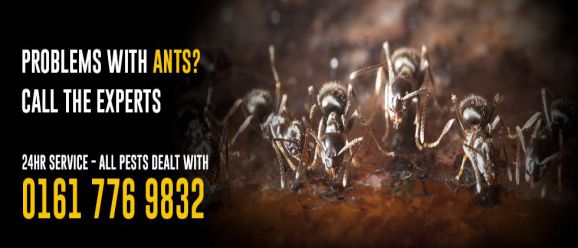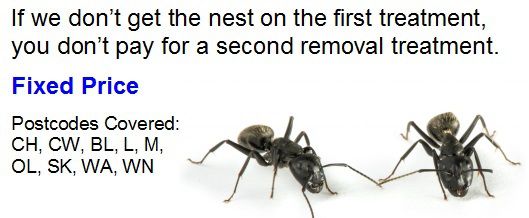
Need Help? Call us on 0161 776 9832 or drop us an email for expert pest control advice on how to identify pest infestations and help solve your problem.
Agony Ants – Professional Abram Ant Infestation Removal and Ant Control
Ants are a strain on your sanity. They can crawl, fly, and bite and bother you, your children, and your pets whether you are awake or asleep. If you have an Abram ant infestation, you will need an appropriate and treatment to achieve Abram ant infestation removal. Young's Pest Control knows what to do when you have an ant infestation in your house.
Pharaoh's Ant and Garden Ant Infestation
The most common ant species are the Garden ant and Pharaoh's ant. Garden ants are not believed to carry disease, but they're still a pest you would not want to live in your home and your food cupboards. Pharaoh's ants can spread disease, decomposing food germs, stuff from around drains and wound dressings.
It can be challenging to figure out where ants are coming from. Therefore, you will want to call Young's Pest Removal for ant control if you have an ant infestation in your house. Unfortunately, Abram ant infestation removal is not something that is quickly or safely done using do it yourself methods. Sprays can poison animals, children, and people alike.
- Up to 15mm (the queen)
- Male 4-5mm
- Middle to late summer
Pharaoh's Ant - Monomorium Pharaonic
1.4-2mm long (male)
Dark brown
Winged
3.5-6mm long and dark red (queens)
Wings lost soon after mating
Seldom fly
Multi queen colonies
Flying Ant Infestation
Flying ants such as the Pharoah's ant-like meat, cheese, and fats, such as you may find underneath your kitchen table, in crumbs barely visible to the naked eye. They will commonly bite children, and as they carry germs, they can cause health issues for any family member.

After eggs hatch into larva, the queen feeds them for three weeks until they pupate. At ten days, adults will emerge and begin working and breeding more ants. Only 10% of the colony is non-breeding ants.
Flying ant infestation must be dealt with promptly, and Young's Pest Control has many happy customers to prove their success!


